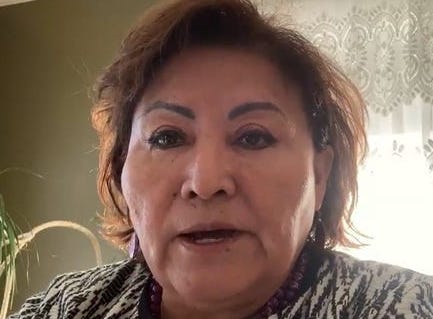After lengthy wait, Biden nominates Indian Health Service director
White House won't explain why nomination of Roselyn Tso took so long during pandemic that killed many Natives.
WASHINGTON — Tribal advocates are widely heralding that President Joe Biden today finally made a nomination to head the Indian Health Service (IHS).
His selection is Roselyn Tso, a Navajo Nation citizen and longtime IHS official, and we’ll talk more about her record — and early support for her nomination — below.
The real story her…
Keep reading with a 7-day free trial
Subscribe to Indigenous Wire to keep reading this post and get 7 days of free access to the full post archives.


